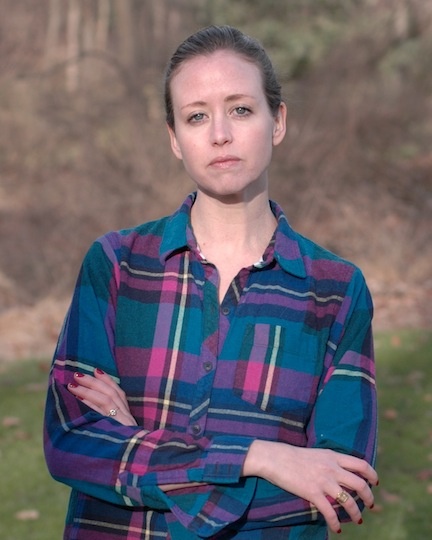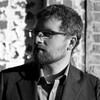
Advertisement

Laura van den Berg: I love creating mysteries, but I am terrible at solving them. I think it would be impossible for me to write a really good mystery in the conventional sense, with all the satisfying twists and turns in plot; that's just not how my mind works, where my narrative interest lies. So what I love about films like The Passenger and L'Avventura is the way mystery is evoked but at a certain point other questions take over. Mystery becomes a state of being as opposed to a ball of yarn to be unraveled. Or take Tomorrow in the Battle Think on Me by Javier Marias, such an amazing novel, which opens with a mysterious death, but ultimately that external mystery becomes an instrument of pressure that cracks open the narrator and allows the reader to see the mystery within. I was very interested in that model of mystery—both structurally and aesthetically.I love the idea of mystery as a "state of being." That's an effect I really admire in your writing, and something that I attempt to create in my own fiction. Your formulation sounds similar to the idea of a "MacGuffin," a term Hitchcock used for an object that sets the story in motion, but that doesn't do much else and often ends up being unimportant or even forgotten by the end. Some examples would be the briefcase in Pulp Fiction or the falcon in the The Maltese Falcon. Are these plot mysteries—a missing magician father, the bones of a deceased brother in Antarctica—what get the stories started for you? Or do they come later in the process?
Yes, exactly. The "MacGuffin" sets the story in motion, but ultimately the narrative eye is directed elsewhere. Usually those external elements are what opens the story for me—and my task is to figure the internal story behind the situation. I often start with voice, meaning I get a first line lodged in my brain and it won't leave me (i.e. "My father leaving was his last act of magic"), and usually an event or situation, a "MacGuffin" element, is suggested in those first lines.
Advertisement
Initially it was just how the stories came out, but after I had written a few I would have had to be pretty inattentive to not notice that there were an inordinate amount of disappearances and twins and detectives, so pretty soon I realized I was working on a collection with clear thematic links. But I tried to not think too much about the larger shape of the book and to just keep writing what I felt like writing.After I had finished the collection—in that I was pretty sure I had all the stories—I did a lot of work on the architecture and the arrangement. I was living in Baltimore at the time and had planned to use one summer to put together ISLE, only to discover that our building would be undergoing major renovations, which involved construction workers accessing a part of the interior that could, bizarrely, only be reached by going through our bedroom closet (I wrote about this whole apartment situation more here). Our apartment was a total disaster and I wasn't working at all. But then some friends were moving and leaving a few weeks before their lease ended, so they let me work in their empty apartment. The luxury of all that empty space felt extraordinary—I had pages all over the floors, all over the walls. The physicality of that process allowed me to see certain architectural details: putting the one third-person story in the middle, as a kind of transitioning device; spacing out the two stories with missing fathers; how the last line of the first story which contains the word "evidence," could bled into "Opa-Locka," a story about private eyes. The first and last story bookend with arrivals and physical danger (a hurricane, an emergency landing); the narrator has a twin that died at birth in the first story; in the last one, the narrator has an adult twin that goes missing—they are re-writings of each other, in a way. Seeing the echoes helped me decide the order (and I think order becomes particularly crucial in a collection with so much linkage). I was also able to see where there were less useful repetitions, the ones that didn't contribute to the larger enterprise, and tried to weed those out as much as possible.
Advertisement
I think where a writer falls on the realism/non-realism continuum has a lot to do with their sight, as in: this is how I see the world. And it seems my sight is off-kilter and kind of strange, but I come by that naturally; I'm not consciously pushing toward a particular point on the continuum. I can remember being in workshop and people writing things like HOW WEIRD in the margins of my stories and I'd be like Really? You think that's weird? It's one of those slightly uncomfortable moments when you realize your understanding of what's strange and what isn't is a little out of step with the people around you. I suspect part of this naturally weird sight is probably connected to growing up in Florida. For example, I did not appreciate how strange it was to have an alligator in your backyard until I moved north.I love many realists, but very strongly resist the notion that realism presents a less stylized, more authentic version of the world. All fiction is a magic trick, but instead of pulling a rabbit out of a hat the aspiration—for me at least—is to do a trick that accesses or reveals some kind of truth. But realism is every bit as engineered, as stylized, as non-realism; it's just that the tricks are different. I think that false correlation between "authenticity" and "realism" still exists and it bugs me. Actually even the idea of going to fiction for "authenticity" bugs me. Do you know what I mean?
Advertisement
I go to fiction in part to disappear. When I'm absorbed in a work of fiction, time and place melts away, as though I've drifted away from my usual reality and been absorbed into another. It's a transcendent feeling. And it's usually only a feeling I can get from fiction. I love all kinds of art and get excited about and feel moved by all kinds of art, but when I am, say, looking at a painting at a museum there is often that slight bit of self-consciousness that can be hard to turn off, a small part of my brain that is actively aware that I am standing in a museum and looking at a painting. I lose that awareness when I'm reading; I forget where I am.Did you read Leaving the Atocha Station? I really loved that book. I'm thinking of the opening scene where the narrator is in a museum, wanting to have some kind of meaningful experience with art, but he's unable to get away from himself. I am not cursed with that dude's level of self-consciousness, thank god.I don't mean to suggest, however, that fiction is escapism for me; it's not at all. I go to fiction to be moved, rattled, woken up, and surprised. To experience something aesthetically interesting. To be asked to re-see some aspect of our world or some aspect of language or the nature storytelling. When I think about the feeling I had upon finishing some of the books that have been the most important to me, it's not so much "finishing" as "coming out of." As in, when I "came out of" The Loser or The Quick and the Dead the world looked a little different than it did before.You mentioned growing up in Florida, and a lot of the stories in The Isle of Youth are set there. Strangeness seems integral to Southern writing from Flannery O'Connor to Cormac McCarthy. Do you feel connected to the tradition of Southern literature at all?
There are so many southern writers I am wild for, but I don't really feel a strong connection to that tradition as a writer. Possibly because Florida is strange in its own particular way, or never seemed quite like living in the south. My mom is from Nashville—and lives there now—and she is adamant that Florida is not really the south. Florida is like three or four states packed into one; we lack the cohesive identity that I associate with other southern states. The identity of Florida feels more transient.You are working on a novel now. Can you tell us anything about it? How does the process of writing novels compare to writing stories for you?
Happily! I started this novel, Find Me, in 2008—which is actually the same year I started Isle. It's about an epidemic that destroys memory and a young woman searching for her mother. In some ways I think Find Me is pretty different from the stories, but there is some overlap: a lot of ghosts and vanishings and a tilted sense of reality. Right now it's scheduled to be out from FSG in early 2015.For me the project of a short story and the project of a novel are so radically different, I find it difficult to compare the two. Certainly the size of the canvas is very different—and both intense, particular challenges and intense, particular joys accompany the larger scale. In respect to process, I find that stories are more compatible with being a person in the world. I can work for a few hours a morning, return when I have patches of time, and make headway. With the novel, I need to maintain a certain level of immersion and that can be harder to achieve for long stretches in my non-imaginary life. As a result, I started to spend more time away, at colonies and whatnot, and also ended up living my imaginary life within my non-imaginary life more. So if you ever meet me and I look like I don't know where I am, that is probably why.
